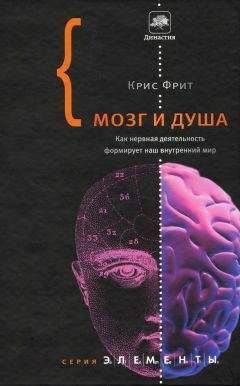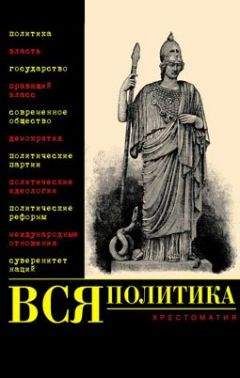This decreasing tendency in a society’s capacity for proper
thought should be counteracted, since it also lowers its immu-
nity to ponerogenic processes. An effective measure would be
teaching both proper thought and skillful detection of errors in
thought. The front of such education should be expanded, in-
cluding psychology, psychopathology, and the science de-
scribed herein, for the purpose of raising people who can easily
detect any paralogism.
POLITICAL PONEROLOGY
155
Spellbinders
In order to comprehend ponerogenic pathways of contagion,
especially those acting in a wider social context, let us observe
the roles and personalities of individuals we shall call “spell-
binders”, who are highly active in this area in spite of their
statistically negligible number.
Spellbinders are generally the carriers of various pathologi-
cal factors, some characteropathies, and some inherited anoma-
lies. Individuals with malformations of their personalities fre-
quently play similar roles, although the social scale of influ-
ence remains small (family or neighborhood) and does not
cross certain boundaries of decency.
Spellbinders are characterized by pathological egotism.
Such a person is forced by some internal causes to make an
early choice between two possibilities: the first is forcing other
people to think and experience things in a manner similar to his
own; the second is a feeling of being lonely and different, a
pathological misfit in social life. Sometimes the choice is either
snake-charming or suicide.
Triumphant repression of self-critical or unpleasant con-
cepts from the field of consciousness gradually gives rise to the
phenomena of conversion thinking, or paralogistics, paramoral-
isms, and the use of reversion blockades. They stream so pro-
fusely from the mind and mouth of the spellbinder that they
flood the average person’s mind. Everything becomes subordi-
nated to the spellbinder’s over-compensatory conviction that
they are exceptional, sometimes even messianic. An ideology
emerges from this conviction, true in part, whose value is sup-
posedly superior. However, if we analyze the exact functions of
such an ideology in the spellbinder’s personality, we perceive
that it is a nothing other than a means of self-charming, useful
for repressing those tormenting self-critical associations into
the subconscious. The ideology’s instrumental role in influenc-
ing other people also serves the spellbinder’s needs.
The spellbinder believes that he will always find converts to
his ideology, and most often, they are right. However, they feel
shock (or even paramoral indignation) when it turns out that
their influence extends to only a limited minority, while most
people’s attitude to their activities remains critical, pained and
156
PONEROLOGY
disturbed. The spellbinder is thus confronted with a choice:
either withdraw back into his void or strengthen his position by
improving the effectiveness of his activities.
The spellbinder places on a high moral plane anyone who
has succumbed to his influence and incorporated the experien-
tial method he imposes. He showers such people with attention
and property, if possible. Critics are met with “moral” outrage.
It can even be proclaimed that the compliant minority is in fact
the moral majority, since it professes the best ideology and
honors a leader whose qualities are above average.
Such activity is always necessarily characterized by the in-
ability to foresee its final results, something obvious from the
psychological point of view because its substratum contains
pathological phenomena, and both spellbinding and self-
charming make it impossible to perceive reality accurately
enough to foresee results logically. However, spellbinders nur-
ture great optimism and harbor visions of future triumphs simi-
lar to those they enjoyed over their own crippled souls. It is
also possible for optimism to be a pathological symptom.
In a healthy society, the activities of spellbinders meet with
criticism effective enough to stifle them quickly. However,
when they are preceded by conditions operating destructively
upon common sense and social order; such as social injustice,
cultural backwardness, or intellectually limited rulers some-
times manifesting pathological traits, spellbinders’ activities
have led entire societies into large-scale human tragedy.
Such an individual fishes an environment or society for
people amenable to his influence, deepening their psychologi-
cal weaknesses until they finally join together in a ponerogenic
union. On the other hand, people who have maintained their
healthy critical faculties intact, based upon their own common
sense and moral criteria, attempt to counteract the spellbinders’
activities and their results. In the resulting polarization of so-
cial attitudes, each side justifies itself by means of moral cate-
gories. That is why such commonsense resistance is always
accompanied by some feeling of helplessness and deficiency of
criteria.
The awareness that a spellbinder is always a pathological
individual should protect us from the known results of a moral-
POLITICAL PONEROLOGY
157
izing interpretation of pathological phenomena, ensuring us an
objective criteria for more effective action. Explaining what
kind of pathological substratum is hidden behind a given in-
stance of spellbinding activities should enable a modern solu-
tion to such situations.
It is a characteristic phenomenon that a high IQ generally
helps a person to be more immune to spellbinding activities
only to a moderate degree. Actual differences in the formation
of human attitudes to the influence of such activities should be
attributed to other properties of human nature. The most deci-
sive factor in assuming a critical attitude is good basic intelli-
gence, which conditions our perception of psychological real-
ity. We can also observe how a spellbinder’s activities “husk
out” amenable individuals with an astonishing regularity.
We shall later return to the specific relations that occur
among the spellbinder’s personality, the ideology he expounds,
and the choices made by those who easily succumb. More ex-
haustive clarification thereof would require separate study
within the framework of general ponerology, a work intended
for specialists, in order to explain some of those interesting
phenomena which are still not properly understood today.
Ponerogenic Associations
We shall give the name “ponerogenic association” to any
group of people characterized by ponerogenic processes of
above-average social intensity, wherein the carriers of various
pathological factors function as inspirers, spellbinders, and
leaders, and where a proper pathological social structure gener-
ates. Smaller, less permanent associations may be called
“groups” or “unions”.
Such an association gives birth to evil which hurts other
people as well as its own members. We could list various
names ascribed to such organizations by linguistic tradition:
gangs, criminal mobs, mafias, cliques, and coteries, which
cunningly avoid collision with the law while seeking to gain
their own advantage. Such unions frequently aspire to political
power in order to impose their expedient legislation upon so-
cieties in the name of a suitably prepared ideology, deriving
158
PONEROLOGY
advantages in the form of disproportionate prosperity and the
satisfaction of their craving for power.
A description and classification of such associations with a
view of their numbers, goals, officially promulgated ideologies,
and internal organizations would of course be scientifically
valuable. Such a description, effected by a perceptive observer,
could help a ponerologist determine some of the properties of
such unions, which cannot be determined by means of natural
conceptual language.
A description of this kind, however, ought not to cloak the
more factual phenomena and psychological dependencies oper-
ating within these unions. Failure to heed this warning can
easily cause such a sociological description to indicate proper-
ties which are of secondary importance, or even made “for
show” to impress the uninitiated, thereby overshadowing the
actual phenomena which decide the quality, role, and fate of
the union. Particularly if such a description is colorful litera-
ture, it can furnish merely illusory or ersatz knowledge, thus
rendering a naturalistic perception and causative comprehen-
sion of phenomena more difficult.
One phenomenon all ponerogenic groups and associations
have in common is the fact that their members lose (or have
already lost) the capacity to perceive pathological individuals
as such, interpreting their behavior in a fascinated, heroic, or
melodramatic ways. The opinions, ideas, and judgments of
people carrying various psychological deficits are endowed
with an importance at least equal to that of outstanding indi-
viduals among normal people.
The atrophy of natural critical faculties with respect to
pathological individuals becomes an opening to their activities,
and, at the same time, a criterion for recognizing the associa-
tion in concern as ponerogenic. Let us call this the first crite-
rion of ponerogenesis.
Another phenomenon all ponerogenic associations have in
common is their statistically high concentration of individuals
with various psychological anomalies. Their qualitative com-
position is crucially important in the formation of the entire
union’s character, activities, development, or extinction.
POLITICAL PONEROLOGY
159
Groups dominated by various kinds of characteropathic in-
dividuals will develop relatively primitive activities, proving
rather easy for a society of normal people to break. However,
things are quite different when such unions are inspired by
psychopathic individuals. Let us adduce the following example
illustrating the roles of two different anomalies, selected from
among actual events studied by the author.
In felonious youth gangs, a specific role is played by boys
(and occasionally girls) that carry a characteristic deficit that is
sometimes left behind by an inflammation of the parotid glands
(the mumps). This disease entails brain reactions in some cases,
leaving behind a discreet but permanent bleaching of feelings
and a slight decrease in general mental skills. Similar results
are sometimes left behind after diphtheria. As a result, such
people easily succumb to the suggestions and manipulations of
a more clever individuals.
When drawn into a felonious group, these constitutionally
weakened individuals become faint-critical helpers and execu-
tors of the leader’s intentions, tools in the hands of more
treacherous, usually psychopathic, leaders. Once arrested, they
submit to their leaders’ insinuated explanations that the higher
(paramoral) group ideal demands that they become scapegoats,
taking the majority of blame upon themselves. In court, the
same leaders who initiated the delinquencies mercilessly dump
all the blame onto their less crafty colleagues. Sometimes a
judge actually accepts the insinuations.
Individuals with the above-mentioned post-mumps and
post-diphtheria traits constitute less than 1.0 % of the popula-
tion as a whole, but their share reaches 1/4 of juvenile delin-
quent groups. This represents an inspissation75 of the order of
30-fold, requiring no further methods of statistical analysis.
When studying the contents of ponerogenic unions skillfully
enough, we often meet with an inspissation of other psycho-
logical anomalies which also speak for themselves.
~~~
Two basic types of the above-mentioned unions should be
differentiated: Primary ponerogenic and secondary ponero-
75 To thicken by either evaporation or absorption of fluid. Diminished fluid-
ity, increased thickness. A concentration. [Editor’s note.]
160
PONEROLOGY
genic. Let us describe as primarily ponerogenic a union whose
abnormal members were active from the very beginning, play-
ing the role of crystallizing catalysts as early as the process of
creation of the group occurred. We shall call secondarily
ponerogenic a union which was founded in the name of some
idea with an independent social meaning, generally
comprehensible within the categories of the natural world view,
but which later succumbed to a certain moral degeneration.
This in turn opened the door to infection and activation of the
pathological factors within, and later to a ponerization of the
group as a whole, or often of its fraction.
From the very outset, a primarily ponerogenic union is a
foreign body within the organism of society, its character col-
liding with the moral values held or respected by the majority.
The activities of such groups provoke opposition and disgust
and are considered immoral; as a rule, therefore, such groups
do not spread large, nor do they metastasize into numerous




